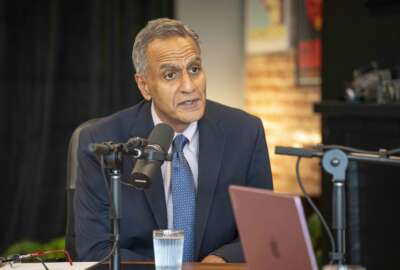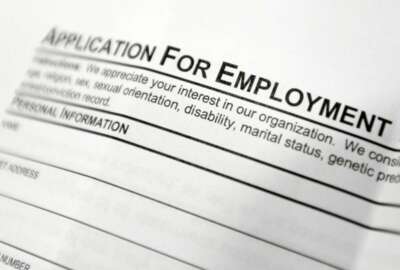Sponsored by Workday
DC Airports Authority takes data-driven approach to hiring, retention, development
The Metropolitan Washington Airports Authority uses a robust HR management system to identify opportunities to hire, upskill and retain employees across a diver...
Running an airport requires a workforce with the same skills as a small city: They have their own first responders, tradespeople, engineers, IT and human resources. The only professions they don’t need are doctors and teachers. That requires a holistic and data-driven approach to human resources to ensure they consistently have the talent they require.
“Our human capital management system provides us with data on every employee at every point in their journey, whether it’s the initial hire, job progression, termination. With that data, we’re able to predict what skill sets we need, what skill sets we’ll be transitioning, whether there are employees retiring or moving on to better opportunities like promotion,” Tanisha Lewis, vice president for diversity, inclusion and social impact for the Metropolitan Washington Airports Authority, said on Federal Monthly Insights — Leveraging data and automation to drive HR transformation. “And so we really use the human capital management system as a tool for planning our future needs. That, along with assessments and interviews and discussions with our employees, really help us to develop a workforce development plan that not only addresses current skill sets but skill sets of the future.”
That plan for workforce development is important, because Lewis said the average tenure of an Airports Authority employee is around 15 years. Being able to identify skillsets, address skill gaps, and prepare employees for future roles is essential. In fact, Lewis said that allowed the Airports Authority to create succession plans for 80% of their leadership in 2023.
The data is taken from performance evaluations, resume data, and interviews, conversations and surveys conducted with employees throughout their tenure about their current roles, skills and aspirations for the future. That data, paired with employee engagement scores, helps establish an HR predictive analytics system that can help determine what employees are at risk of potentially leaving. With that knowledge ahead of time, the Airports Authority can make a plan to develop staff to backfill the position before it’s even open.
“We focus on developing skills and talents that are tied to the overall business plan. And this plan is often evaluated for the effectiveness and the ability to address the needed skills to run the Airports Authority,” Lewis told the Federal Drive with Tom Temin. “So we look at building skills that create a resilient organizational workforce. We work to identify those skill sets, identify gaps, create strategies and programs that help us build and apply the needed capabilities, all with the focus on our employees. So it’s really important that we take a look at every phase of the organization, every role, and ensure that we have the correct skill set.”
Another thing that helps the Airport Authority retain their employees is the flexibility of their workplace arrangements. While a large portion of the Airport Authority’s employees are considered essential, many others were able to telework throughout the pandemic. Since then, the Airport Authority has been navigating a return to work, and has settled into a hybrid work situation where employees are in the office three days a week, and telework the other two.
“It’s been working out well for us,” Lewis said. “And I must say that our talent development strategy this year made a significant shift. As employees return to the workplace, we placed an enhanced focus on psychological safety and emotional intelligence so that we could prepare everyone for that return to 100% interaction with individuals or even that hybrid situation. And so it’s been an amazing experience. Our employees have responded well to the change.”
And recruitment starts early for the Airports Authority — Lewis said the Airports Authority performs outreach as early as middle school and high schools. It also has partnerships with universities across the country to build awareness of the opportunities it offers. Airports Authority also partners with associations and organizations to advertise positions around specific skillsets that it’s looking for, to develop targeted talent pools.
“If your outreach isn’t intentional about around skill sets, then you’re not fruitful,” Lewis said. “And so we look to hire one qualified candidates and two diverse candidates. And so we do that through rigorous and continuous outreach.”
Copyright © 2024 Federal News Network. All rights reserved. This website is not intended for users located within the European Economic Area.
Daisy Thornton is Federal News Network’s digital managing editor. In addition to her editing responsibilities, she covers federal management, workforce and technology issues. She is also the commentary editor; email her your letters to the editor and pitches for contributed bylines.
Follow @dthorntonWFED






